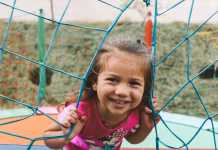A few years ago, within 12 months’ time, our family lost two of its special members. My father, “Papa” to my kids, died soon enough before Christmas to leave us still in shock through that holiday. But before the next Christmas came, my nephew, my parents’ first grandson, and my children’s much-loved cousin, Noah, was killed in an accident. We faced down the holidays, as we have for years since, feeling a keen sadness and loss in our family. The first couple of years I could barely function myself and had no idea how to navigate this kind of grief with my children. Here are a few things I’ve learned as we’ve traveled this difficult road:
- Cellular Trauma Memory is real. A part of grief not often mentioned is the way our bodies remember. Even if we do not consciously mark an anniversary of a traumatic event, our bodies sometimes do the remembering for us. As a death anniversary nears, it’s important to remember that you and your kids may feel “off” or as if something is wrong but you’re not quite sure what. The anniversaries of our loved ones’ deaths do come around the holidays, so it has been interesting to sort out what might be holiday dread, and what might actually be intensified grief on an anniversary. Talk this over with kids who are old enough to understand and help them know that anniversaries and holidays are a time to give ourselves and our bodies extra TLC.
- Talk about your loved one. I know it is difficult to point out the elephant in the room if no one else has, but I promise it gets easier. We must give our children the freedom to speak about a lost loved one. In the loss of their son, my brother and sister-in-law have found it so painful when people avoid speaking of him or using his name. Many people are afraid to bring up a loved one, thinking they may cause additional pain. What I’ve discovered is that I’m already in pain and already thinking of the ones I love so much. When someone mentions them, it’s not like they can remind me of the pain I’m already in. What they can do is give me a chance to relive a happy memory or to know that I’m not the only one remembering and missing my people. My children speak freely of their Papa and their cousin, Noah, and our holiday celebrations have turned into lots of laughter over funny stories about them as we share our memories with each other and anyone else around our table.
- New traditions help. Every Christmas since my Dad passed away, my mom has joined me for Christmas in New Orleans. Traditionally, Mom and Dad’s home in Florida had been the meeting place for all of us on holidays. After we lost Dad so close to Christmas, bringing Mom home with me that year was done out of necessity to help take care of her and give her a change of scenery after Dad’s illness. But every year, she’s come back to my house to stay for a week or so during Christmas. This new tradition has helped us create new memories and has given my mom much-needed help with all the holiday work. A friend gave us a special ornament to represent my Dad and as we decorate our tree, everyone looks for that ornament and we place it in a prominent spot. Some of our new traditions revolve around remembrance and some take the place of traditions that can’t be done or are too painful to do without our Papa or Noah. Either way, new activities or traditions can help us experience the joy of the holiday even as we sit with our sadness.
- Bringing things down a few notches because you’re grieving is not only fine, it’s beneficial. The last thing a grieving mom or kid needs is more stress, and the holidays tend to bring plenty of extra stress. It’s ok to simplify your gift-giving, pare down your attendance at holiday functions, reduce the number of dishes you’re cooking, or outsource your meal altogether. What kids need more than sparkling Christmases are moms that can be present with them and give them permission to enjoy themselves or to be sad if that’s what’s needed. Do what you need to do as a mom to give your kids the gift of a healthier mother. Whether it’s therapy, a doctor visit, reducing your holiday activities, or buying dinner, whatever helps you reduce your stress will reduce your child’s stress.

I’ve met a few people for whom the holidays are so painful, they’d rather not celebrate at all. I can certainly identify, but after searching my soul, I do still hold to the reasons we celebrate the holidays we observe and I want to pass those to my children. Focusing on why I cherish the holidays helps me celebrate them in the midst of our grief in the way my family finds most healthy and joyful. It’s important to me that my children learn how joy and sorrow so often intermingle and that it’s ok to experience both on the same day, same hour, and even simultaneously. We do not need to wait for grief to finish in order to find moments of celebration and happiness. Indeed, we cannot wait since some griefs will never be over, but we can learn and teach our children how to cultivate joy even in sadness.
















